by ASJAD NAZIR
KURAN DOHIL STARS IN THOUGHT-PROVOKING PLAY COCONUT
MOST British Asians can relate to falling in love with someone considered the “wrong person” by their family and community.
New theater play Coconut explores this with the story of a British Muslim female disconnected from her culture who falls in love with a white man. Things get complicated further when he decides to convert to Islam and she becomes too western for him.
The culture clash comedy has a female-led team that includes writer Guleraana Mir, director Madelaine Moore and lead star Kuran Dohil, who takes on her first major role. Eastern Eye caught up with Kuran to talk about Coconut, her character, real life cross-cultural romantic experience and more...
What first connected you to acting?
When I was in my last year of primary school, the end of year production was Oliver Twist and I played Nancy. I remember feeling so unbelievably nervous to be stood on stage singing and acting in front of my family and the rest of the school, but the feeling I got inside was incredible.
I had so much adrenaline before setting foot on stage, and as soon as I was there the 11-year-old me felt surprisingly comfortable and in control. I had so much fun! That was the moment I realised this was what I wanted to do for the rest of my life.
You are a recently graduated actor. How did you feel landing the lead role in Coconut?
I can’t even explain how happy and relieved I was! Auditioning for Coconut was different. I have worked with Guleraana’s writing and been directed by Madeleine before, so really wanted to be involved with this show. I was over the moon when I found out that I got the job.
Tell us about the story and your character...
Coconut is about a ballsy young woman called Rumi who just wants to live her life to the max. She’s smart and creative and ventures out into becoming a food blogger – a perhaps unexpected job for a young Muslim woman. Rumi is inspirational in how she stays true to herself. She knows she should probably be a doctor or a lawyer, but does what makes her happy.
However, what makes things worse for her is she loves to drink, party and eat foods that are completely haram. When she wants to find the right guy and settle down, she knows deep down that no Muslim man would accept her ‘brown on the outside, white on the inside’ behaviour. But she meets Simon, a white guy, and falls in love. The story becomes about their relationship and how it changes them as people.
Who are you hoping connects with the play?
I’m hoping most young people, especially those who are of South Asian heritage, connect to Coconut. Living in the UK, our generation are a lot more westernised yet some people are afraid to experience anything different from their cultural and/or religious norms.
For example, many people are finding love more openly with others who are not culturally or religiously the ‘same’ as them, but sadly many still have to keep certain relationships a secret from family and friends. I speak from personal experience too! I hope Coconut also connects with an older generation, to make people aware that times are swiftly moving forward and for them to embrace change instead of pushing it away.
What is your favourite moment in the story?
My favourite moment is definitely when Rumi and Simon go on their first date at Top Golf. There is something so real in their innocent awkwardness at being with the person they like so much for the first time.
Having no idea what might happen and not knowing who will make the first move is so exciting. I particularly love when Simon shows Rumi how to hold a golf club and that spontaneous action brings them physically closer together. You can almost hear the butterflies fluttering in their stomachs!
Are there any aspects of the character that you can relate to?
(Laughs) Well first of all, Rumi is hilarious and I like to think I have my moments, sometimes! I could also go as far to say that I am a bit of a ‘coconut’ myself. I have grown up in a westernised society. I was born and raised in Slough, grew up fan-girling over Busted and McFly, had my own Emo/Scene phase, which my mum absolutely hated, and yet I wish I had more of a deeper connection to my Indian roots. On top of that, just like Rumi, I fell in love with a white English man. That came with its own hiccups when I had to introduce him to my family!
You say you had a personal experience of falling in love with a white English man; how did you handle the situation in real life?
At the beginning, having a secret relationship was ridiculously difficult as I was always so terrified of anyone seeing us together out in public. I was always weary of the aunties who aren’t really my aunties seeing and sending word back home. It nearly came to the point where I broke it off purely because of how I thought my family would react.
It was so draining having to constantly lie to my family about where I was and who I was with. I found that to be the worst part actually because my mum and I have always been so close. Luckily, from the beginning, Matt understood how complicated it is to be with a brown girl. Yet I know that this situation is something that loads of young Asian people have had to go through.
What happened next?
My mum found out about Matt and I so unexpectedly. It was New Year’s Eve 2014 and it was so close to midnight. My mum just said: ‘Before the year ends, I want to know whose texts are making you smile at your phone like that. No more secrets’. So I ended up telling her in floods of tears as I had no idea what was going to happen.
Luckily, my mum’s way of thinking is quite westernised and she came around. Matt and I have been together for three-and-a-half years now and most of my family know and have accepted our relationship. Soon it will be all my family!
How do you feel about making your debut on such a big tour?
I am so excited! After graduating from Italia Conti Academy of Theatre Arts and experiencing the uncertainty of the acting world, I am so pumped and honoured to work with such a fantastic script. This is going to be an experience unlike anything I have done and I am so ready to embark on this journey with some incredibly-talented people.
Who is your acting hero?
Wow, that is such a hard question! There are so many actors I adore, but one actor whose performance will always stay with me is Denise Gough playing Emma in People, Places & Things, a play by Duncan Macmillan.
I was lucky enough to see it at the Wyndham’s Theatre and was completely blown away by how much she put into her character. She was so truthful and powerful, I could honestly watch her in awe all day long.
What would be your dream role?
I would absolutely love a role that lets me sing as well as act. I’ve loved singing before I even started acting so it would be incredible to do something that allows me to do both. If I were stronger at dancing, I would have loved to have been a part of Punchdrunk’s The Drowned Man: A Hollywood Fable.
Why should we watch your theatre play Coconut?
Coconut shines a light on the Islamic religion and culture, and that isn’t something you often get to see on stage. I think it’s incredibly important to see theatre that teaches you something new. However, it’s more than just that! Coconut explores real people and real-life situations that can happen to just about anyone, no matter what age, culture or religion, so it’s just so relatable. It’s hilarious and witty, so if you fancy a laugh and seeing a piece of theatre put together by an awesome all-female creative team, get yourself to the Ovalhouse Theatre in April!
Why do you love acting?
Being an actor, I get to read so many amazing pieces of writing, especially Coconut, and then let the writing breathe and bring it to life. Acting is one of the ways I can express myself freely. It gives me the ability to become whoever I want to be. That incredible feeling is so powerful when I’m on stage. Ever since I was a child, I always loved entertaining people and now I get to do that for a living.
- Coconut commences a UK theatre tour with a run at Ovalhouse in London from April 11 until April 28 before embarking on a UK tour from May 16 to June 30. Visit www.ovalhouse.com and www.thethelmas. co.uk/coconut for more information.





 Lunchbox is a powerful one-woman show that tackles themes of identity, race, bullying and belongingInstagram/ lubnakerr
Lunchbox is a powerful one-woman show that tackles themes of identity, race, bullying and belongingInstagram/ lubnakerr She says, ''do not assume you know what is going on in people’s lives behind closed doors''Instagram/ lubnakerr
She says, ''do not assume you know what is going on in people’s lives behind closed doors''Instagram/ lubnakerr








 He says "immigrants are the lifeblood of this country"Instagram/ itsmetawseef
He says "immigrants are the lifeblood of this country"Instagram/ itsmetawseef This book is, in a way, a love letter to how they raised meInstagram/ itsmetawseef
This book is, in a way, a love letter to how they raised meInstagram/ itsmetawseef
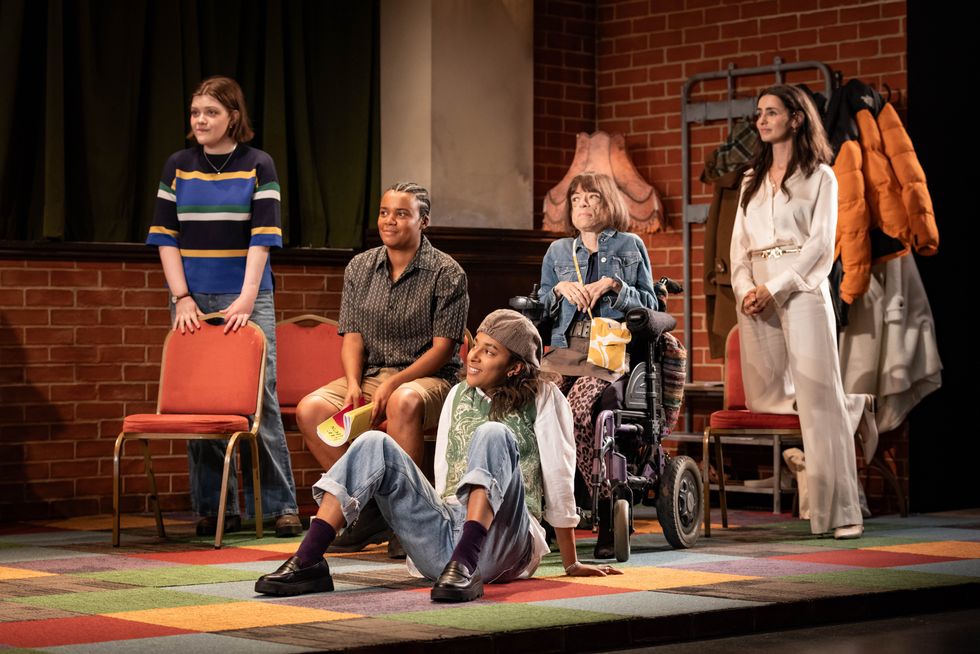 The crew of The Ministry of Lesbian Affairs
The crew of The Ministry of Lesbian Affairs
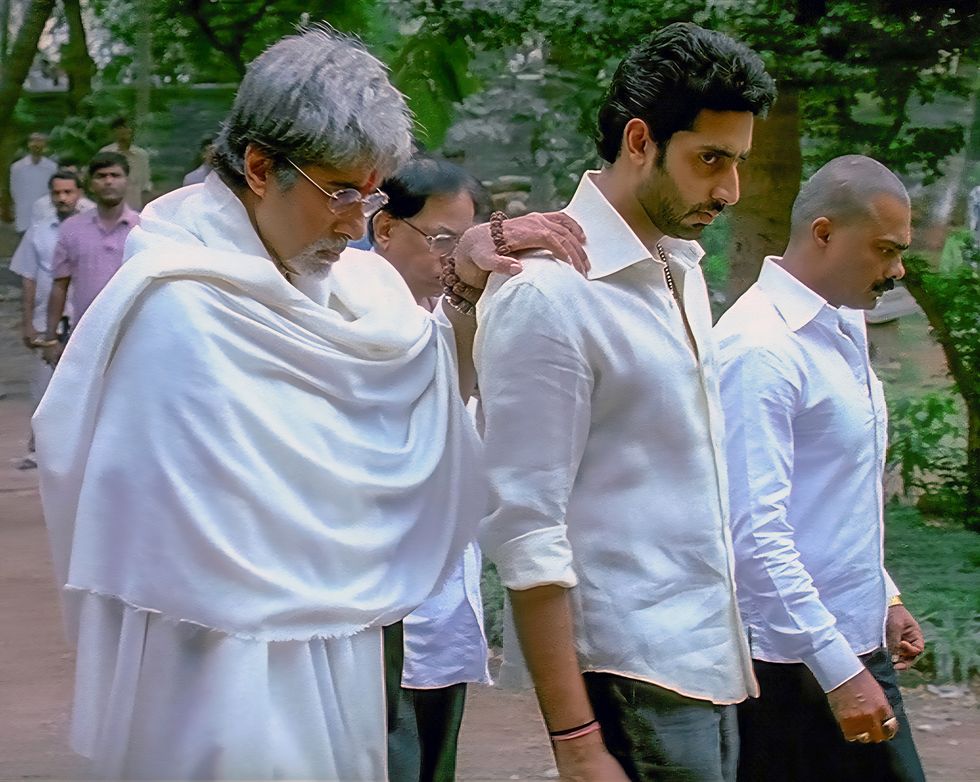 A still from Sarkar, inspired by 'The Godfather' and rooted in Indian politicsIndia Glitz
A still from Sarkar, inspired by 'The Godfather' and rooted in Indian politicsIndia Glitz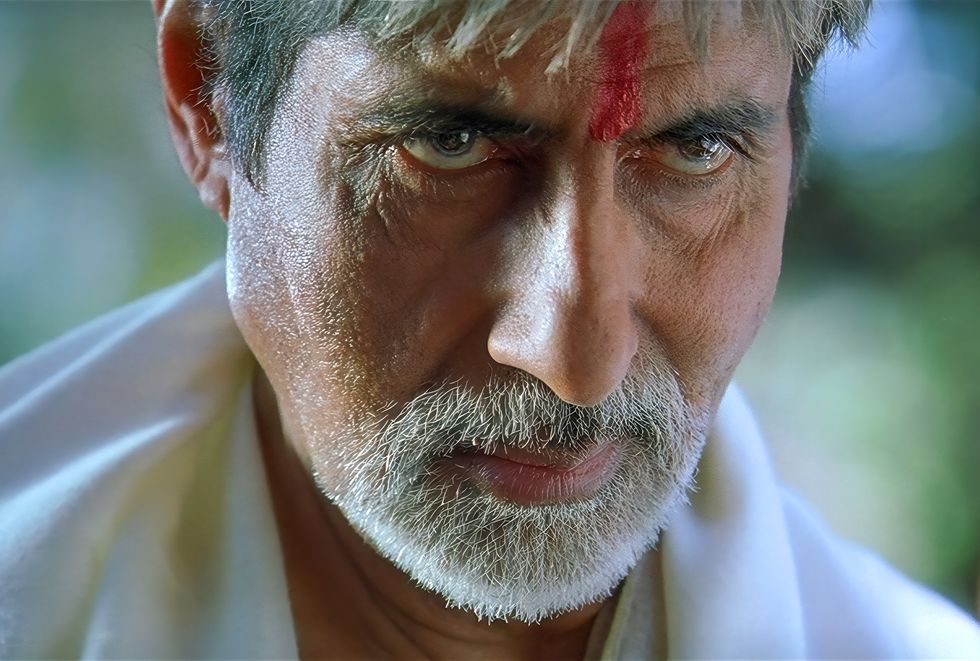 Sarkar became a landmark gangster film in Indian cinemaIndia Glitz
Sarkar became a landmark gangster film in Indian cinemaIndia Glitz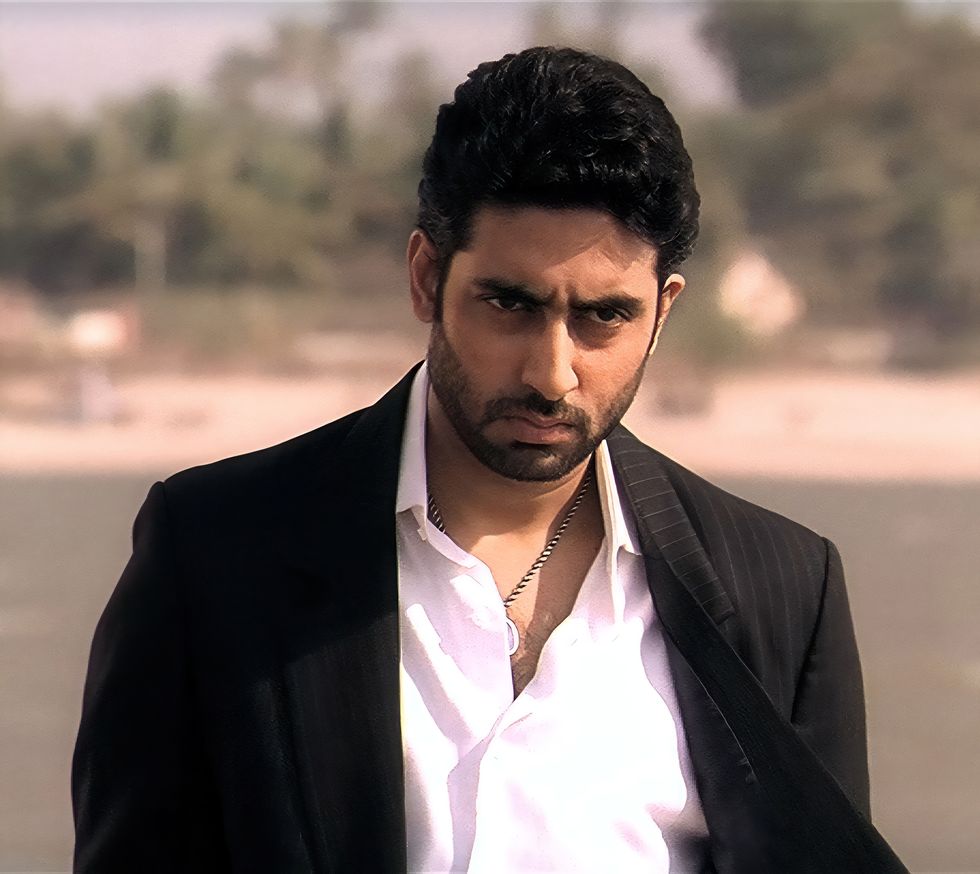 The film introduced a uniquely Indian take on the mafia genreRotten Tomatoes
The film introduced a uniquely Indian take on the mafia genreRotten Tomatoes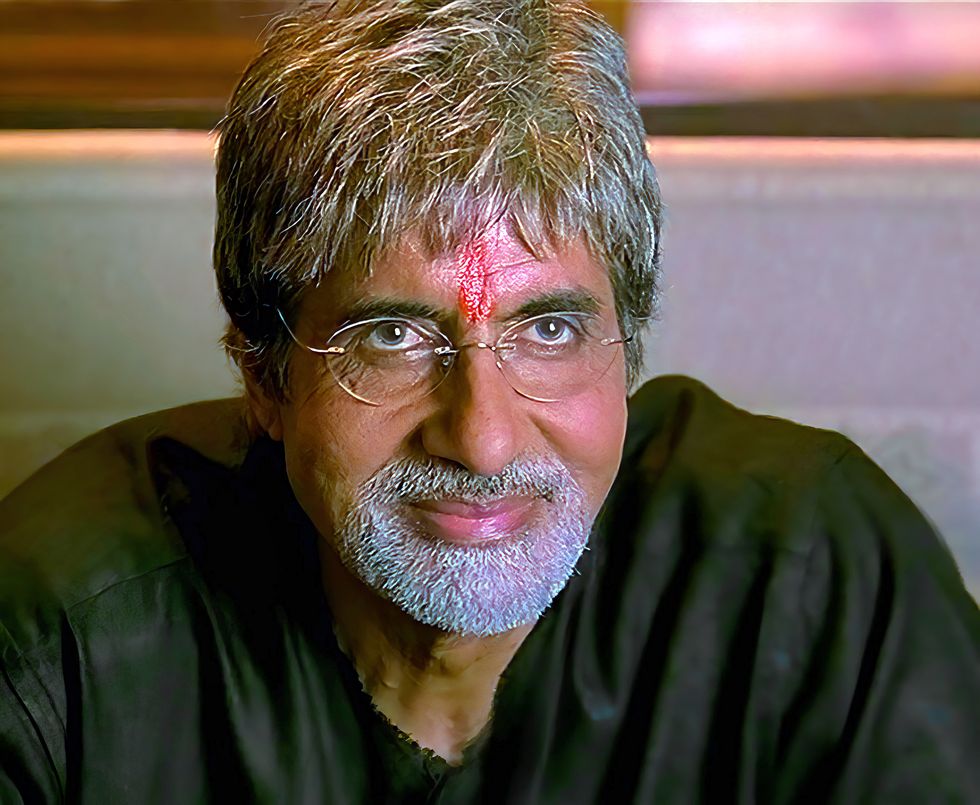 Set in Mumbai, Sarkar portrayed the dark world of parallel justiceRotten Tomatoes
Set in Mumbai, Sarkar portrayed the dark world of parallel justiceRotten Tomatoes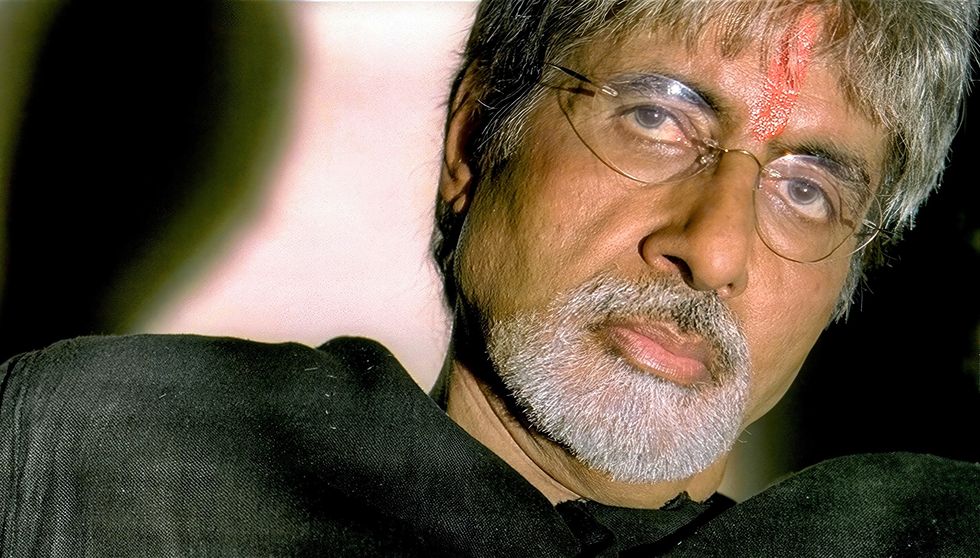 Ram Gopal Varma’s Sarkar marked 20 years of influence and acclaimIMDb
Ram Gopal Varma’s Sarkar marked 20 years of influence and acclaimIMDb
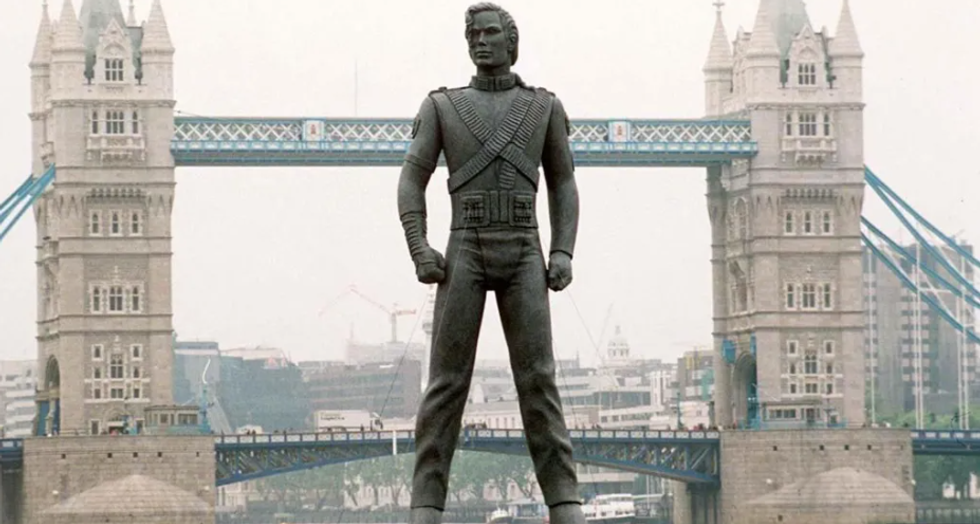 The statues were the product of a transatlantic effortGetty Iamges
The statues were the product of a transatlantic effortGetty Iamges